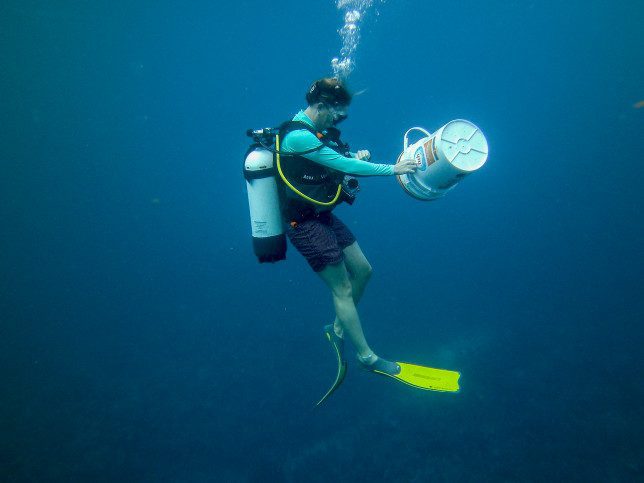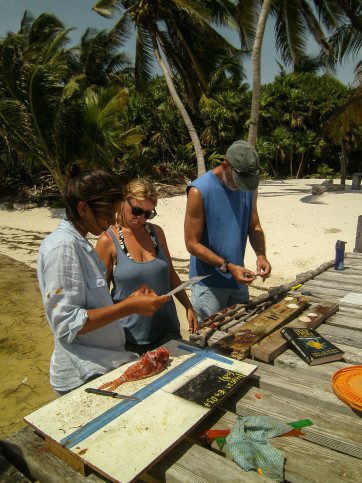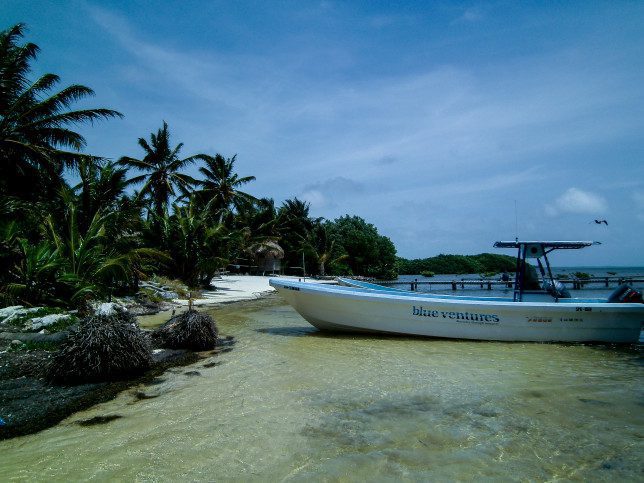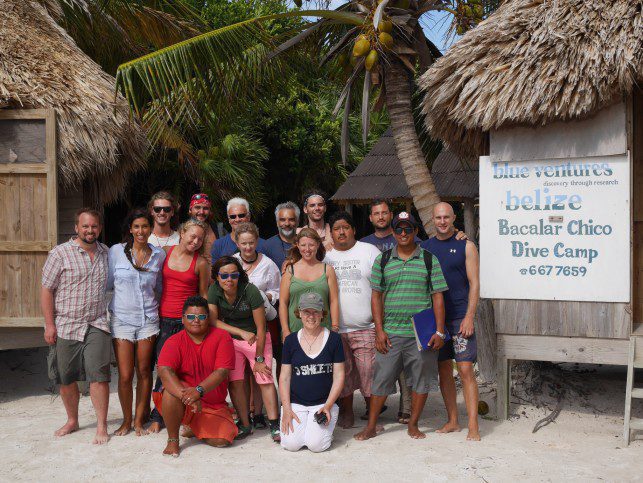by Meira Mizrahi, Field Scientist, Belize
The start of a new expedition is always exciting; new surveys and sights, the anticipation of getting back to Bacalar Chico and into the beautiful Belizean waters, and the fresh and enthusiastic energy that comes from receiving a new group of volunteers.
This expedition is no exception, however there is a slight breeze of added excitement in the air as this will be Blue Ventures first entirely lionfish focused expedition. After months of hard work and careful planning we are finally ready to begin our new Lionfish Focused Surveys, which form part of our invasive lionfish monitoring programme in Bacalar Chico, and will produce the first accurate density estimates for Belize. After countless meetings, discussions and in-water trials, we are decisively ready to put our method into practice!

The volunteers were keen to get stuck in and do their part in the removal effort
As we meet and get to know the new group of volunteers, it is clear that they are from a range of backgrounds – gap year students, retired school teachers and businessmen/women to mention a few. This short week-long expedition has attracted many professionals who otherwise would not be able to get away to join a full six-week expedition, and thus eventuated in a diverse group of individuals.
One quality all our volunteers have in common is that they are all ready to take a hands-on approach to learning about the issue that is the invasive lionfish. It’s clear that the volunteers have a range of knowledge about this subject, so we delve into deep discussions surrounding this invasive species and how its presence in the Caribbean is growing at an unprecedented rate. The major concern is that lionfish have a generalist diet allowing them to prey upon a wide variety of ecologically and commercially significant fish and invertebrates, while their many venomous spines mean they have few natural predators.

The volunteers helping the lionfish dissections
These discussions quickly get the volunteers to inspired to take part in the lionfish culling and we are able to catch many thanks to the help of Desi, our boat captain and champion lionfish hunter. Blue Ventures has a special license that allows us to lead controlled lionfish culls, a task that has the volunteers chatting about with a quiet mixture of excitement and trepidation.
Back at camp everyone is eager to be involved in the lionfish dissections. We find some interesting prey items in the stomach; shrimp, small crabs and some fully formed juvenile surgeonfish! It never ceases to amaze me how large a prey item the lionfish can capture.

It was sad for many of the volunteers to leave – even on our lovely boat
By the end of the week we have completed all our surveys, culled over 20 lionfish and eaten them all (might I add that they tasted fantastic!). Unfortunately the time has come to say goodbye to this wonderful group of volunteers – the only downfall of my job. They too are sad to leave, and we can barely get them on the boat back to San Pedro! As we wave our goodbyes, we have been refreshed by their enthusiasm and ready to continue our effort to manage the invasive lionfish with the next group of volunteers.

Say cheese! The volunteers of our inaugural lionfish expedition pose for a group shot

